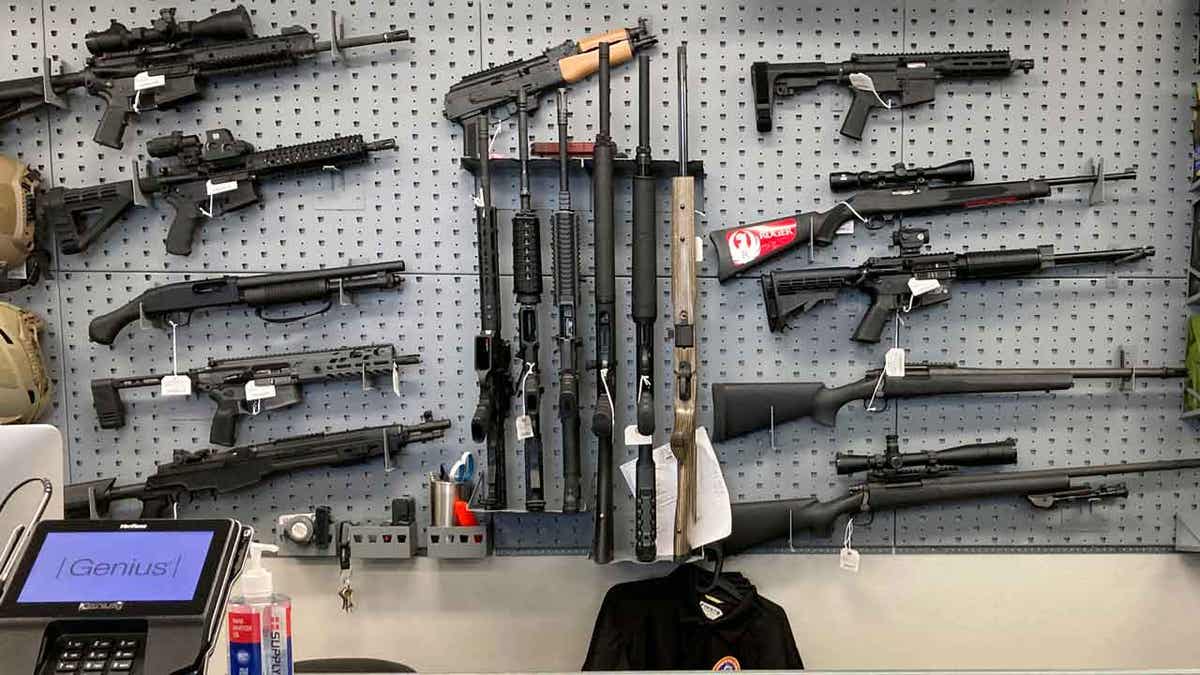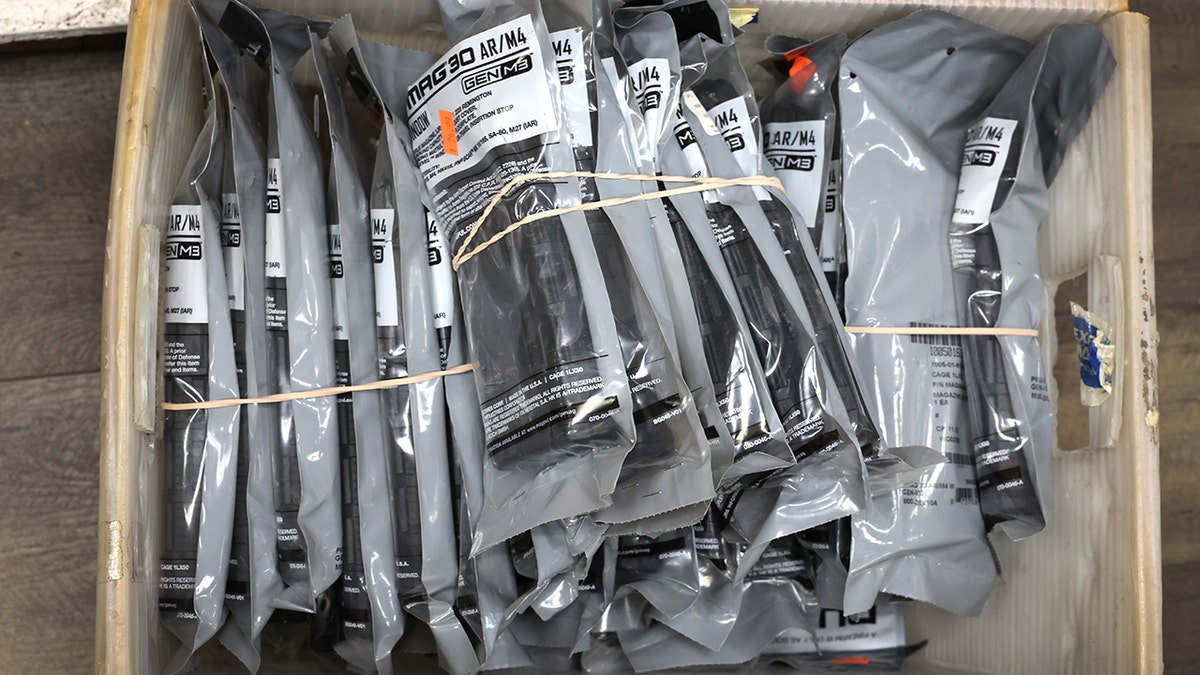Federal judge declines to temporarily block key portion of Illinois high-power semiautomatic weapons ban

A federal judge in Illinois has declined to temporarily delay a portion of the state law banning some high-power semiautomatic weapons from going into effect.
U.S. District Judge Stephen McGlynn on Friday declined a request from several gun rights groups that would have delayed the Jan. 1 deadline for residents of Illinois to register their guns that are under the ban, according to the Chicago Tribune.
According to the report, those who have guns or accessories that are included in the ban are required to file “endorsement affidavits” with the Illinois State Police on their website.
Individuals who fail to register could be charged with a misdemeanor for the first offense and a felony for any offenses after.
SUPREME COURT ALLOWS ILLINOIS SEMIAUTOMATIC WEAPONS BAN TO STAY IN PLACE
Levi Slater of Accuracy Firearms in Effingham, Ill., describes details of a Heckler & Koch brand rifle that can no longer be sold to customers because of state firearms legislation that bans the sale and distribution of assault weapons and high-capacity magazines. (John J. Kim/Chicago Tribune/Tribune News Service via Getty Images/File)
McGlynn wrote in his opinion that a temporary injunction would “create further delays in this litigation when the constitutional rights of the citizens demand an expeditious resolution on the merits.”
President of Federal Firearms Licensees of Illinois, Dan Eldridge, told the outlet that the issue could end up in the Supreme Court.
“There’s a lot of stuff in motion in here,” Eldridge said.
ILLINOIS GOV. JB PRITZKER SIGNS LAW BANNING FIREARM ADVERTISEMENTS THAT APPEAL TO CHILDREN

Firearms are displayed at a gun shop. (AP Photo/Andrew Selsky/File)
The ban, signed by Democratic Gov. J.B. Pritzker in January, includes penalties for individuals who, “carries or possesses… manufactures, sells, delivers, imports, or purchases any assault weapon or .50 caliber rifle.”
The law also includes statutory penalties for anyone who, “sells, manufactures, delivers, imports, possesses, or purchases any assault weapon attachment or .50 caliber cartridge.”
Any kit or tools used to increase the fire rate of a semiautomatic weapon are also included in the ban, and the law includes a limit for purchases of certain magazines.

High-capacity rifle magazines are removed from display at Freddie Bear Sports in Tinley Park, Ill., in January. (Scott Olson/Getty Images/File)
On Dec. 14, the Supreme Court allowed the law to remain in place after the National Association for Gun rights asked for a preliminary injunction.
In November, a 7th District U.S. Court of Appeals panel also refused a request to block the law. In August, the law was upheld by the Illinois Supreme Court in a 4-3 decision.




